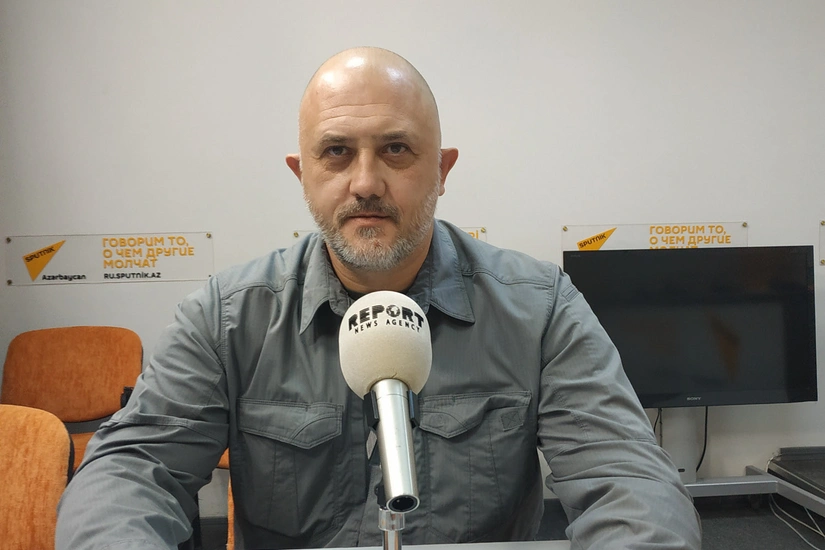Russian expert: Zangezur corridor to improve logistics in South Caucasus
- 19 August, 2021
- 07:51

The Zangezur corridor will improve logistics among the region’s countries, but only if stability remains in the South Caucasus. Stability will come only when Yerevan is forced to sign a peace treaty with Azerbaijan, an expert on interethnic conflicts, a member of the Union of Journalists of Russia Yevgeny Mikhailov told Report.
The expert noted that despite Armenia’s inclination to provocations to slow down opening the Zangezur corridor, Yerevan won’t refuse to participate in such a promising project for the country’s economy.
“They will try to show that their opinion means something, and nevertheless use this opportunity for their people and state. However, I can assume that Yerevan will still figure out how to provoke this or that conflict again to delay the full-scale launch of such an important project for the region. It is necessary to be ready for this because, unfortunately, the Armenian leadership doesn’t think with its mind but acts depending on its western partners,” the political scientist noted.
In his opinion, the statements of Azerbaijani President Ilham Aliyev about the possibility of establishing the Zangezur corridor as a new transport project for entire Eurasia are fully justified. New roads and railways will appear with this corridor, and the communications that existed earlier will get their second wind.
“For Armenia, there will emerge an opportunity for direct communication with Russia and other countries, including the ability to supply goods to the countries of Central Asia freely,” Mikhailov stressed, adding that any initiatives aimed at maintaining peace and stability in the region ‘cause only deep respect.’
The expert noted the importance of creating new formats of interaction in the region: “The ‘3+3’ format proposed by Ilham Aliyev and similar initiatives aim to improve the well-being of the population and the security of the countries of the South Caucasus region.”
“It is obvious that the old formats are getting out of date and don’t keep up with reality and, in fact, exhaust their potential. It is necessary to propose new formats of communication at the interstate level,” the expert noted.
